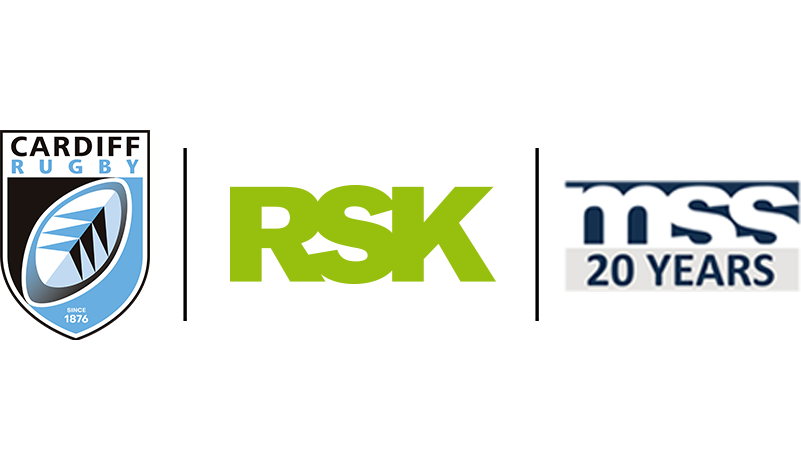Theres a long list of Cardiff born wingers who made their name in the north of England. The legend of Tiger Bay and the incredible rugby athletes created in the Cardiff docklands is familiar to every rugby league fan. The achievements of men like Billy Boston and Clive Sullivan are finally becoming better known in their homeland. But there were many others.
Perhaps the most unfairly overlooked is Frank Wilson.
Frank was not the first person of colour to represent his home city at rugby union. But he was the first Cardiffian of colour to become a first team fixture and begin making a case for international honours. He spent four seasons with the Blue and Blacks before also giving in to the temptation of the other code. But what a four seasons he had.
A product of Llandaff North, Frank was a powerful winger with both size and pace. He made his Cardiff debut against the Barbarians on 7th October 1964 at the age of 20 (also the first match played under floodlights at the Arms Park). That same season he became a fixture with the rags, scoring 10 tries over the course of the season.
In 1966 Frank really announced himself on the big stage, scoring a hattrick against Coventry (then one of English rugby’s big guns). This was now a Cardiff team that could boast players like Gareth Edwards, Maurice Richards and Gerald Davies, under the pioneering tutelage of Roy Bish, the club’s first coach. Toward the end of the season, Cardiff would experiment and move Frank from the wing to number 8 to try and utilise his raw power.
By the following season, if there were any remaining barriers to Frank featuring regularly for Cardiff they were well and truly shattered. Frank scored 17 tries in 24 matches as he came of age as a rampaging winger. Then in December 1967 came the moment when Frank Wilson would come agonisingly close to becoming a rugby union immortal.
That year, the touring All Blacks would not play any Welsh club sides. In a change of policy the WRU put together West Wales and East Wales select XVs to face the tourists. The matches would be regarded as unofficial trials for the Welsh national side. Eight Cardiff players would be selected for the East Wales team: Barry John, Gareth Edwards, Gerald Davies, Keri Jones, John O’Shea, Lynn Baxter, John Hickey and Frank Wilson.
The team was coached by former Cardiff player Dai Hayward who had a simple approach for his hastily assembled team. “If we get hold of the ball, lets move it.”
It was expected to be a routine win for the All Blacks, but the quick, mobile pack and leadership of John and Edwards more than surprised the New Zealanders before 40,000 at the Arms Park. In the 22nd minute a drop goal attempt from John veered to the left…. but following up, outstripping every All Black for pace was Frank Wilson. Frank’s try gave the unfancied Welsh team the lead. Later in the half, a second try for Frank would be controversially disallowed.
Under the scoring system of the day, the score was 3-0 to East Wales at halftime. And despite them continue to launch attacks on the All Blacks thats how it would stay. Until 10 minutes from time. A try from Cook levelled the scores at 3 all. A late drop goal attempt from Barry John agonisingly grazed the post.
The game ended as a draw. The All Blacks remained unbeaten. Many at Cardiff would grumble that a full Cardiff team if given the chance would have beaten the All Blacks that day.
Frank would finish that season as Cardiff’s top try scorer… and then leave for St Helens. He would score 176 tries in 310 matches and finally play for Wales in the other code. He would return to Cardiff in 1981, where at the age of 37 he would represent his home city once again, wearing the colours of Cardiff City Blue Dragons. He later became a rugby league coach, with Broughton Rangers and the University of Manchester. Frank still lives up north to this day.
What might have happened if Frank had been awarded his second try and the All Blacks had been beaten? Perhaps his name would have been impossible to ignore by the Wales selectors and he would have become the first player of colour to represent Wales?
We’ll never know. The call never came. But nontheless he has left his mark on the game, and inparticular on this club. After Frank, came the mercurial Danny Wilson (father of Ryan Giggs), Carl Smith – the long serving back five forward who’d score for Cardiff against the All Blacks in 1978, Gerald Cordle and so many others.
Since Frank, Cardiff teams have reflected the diversity of their city. For that reason, he will always have a special place in the pantheon of Cardiff wingers. Its quite a legacy for the boy from Llandaff North.
